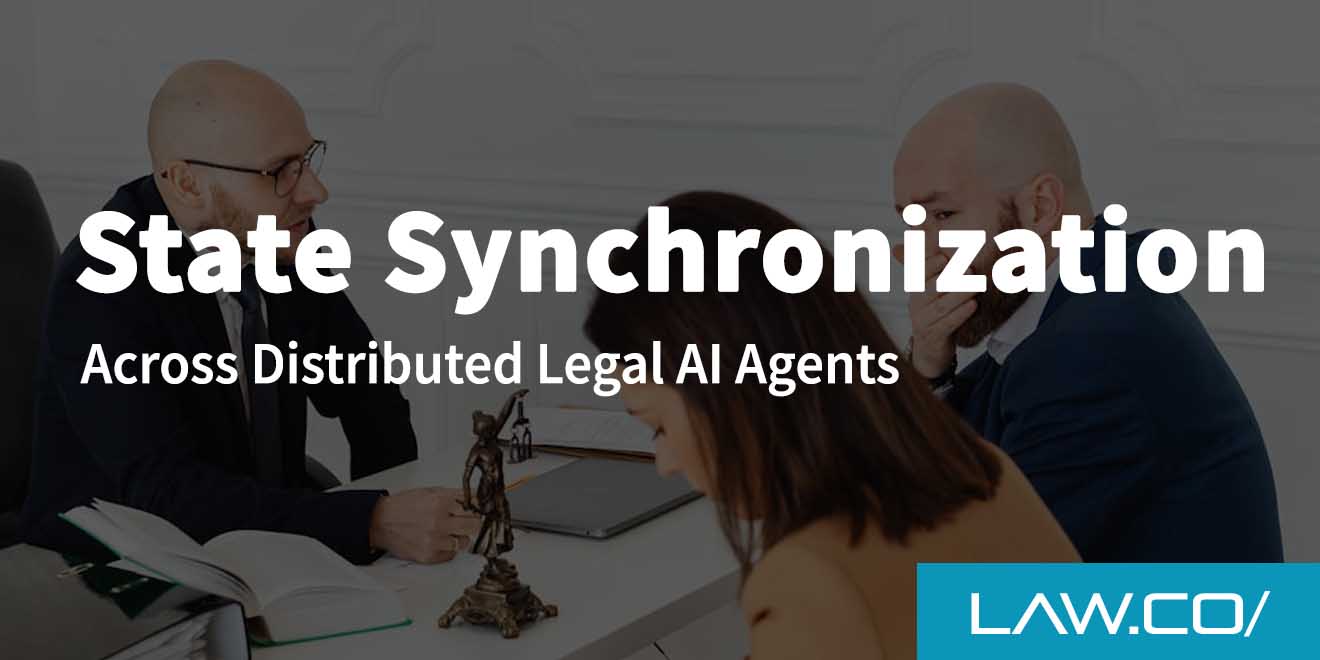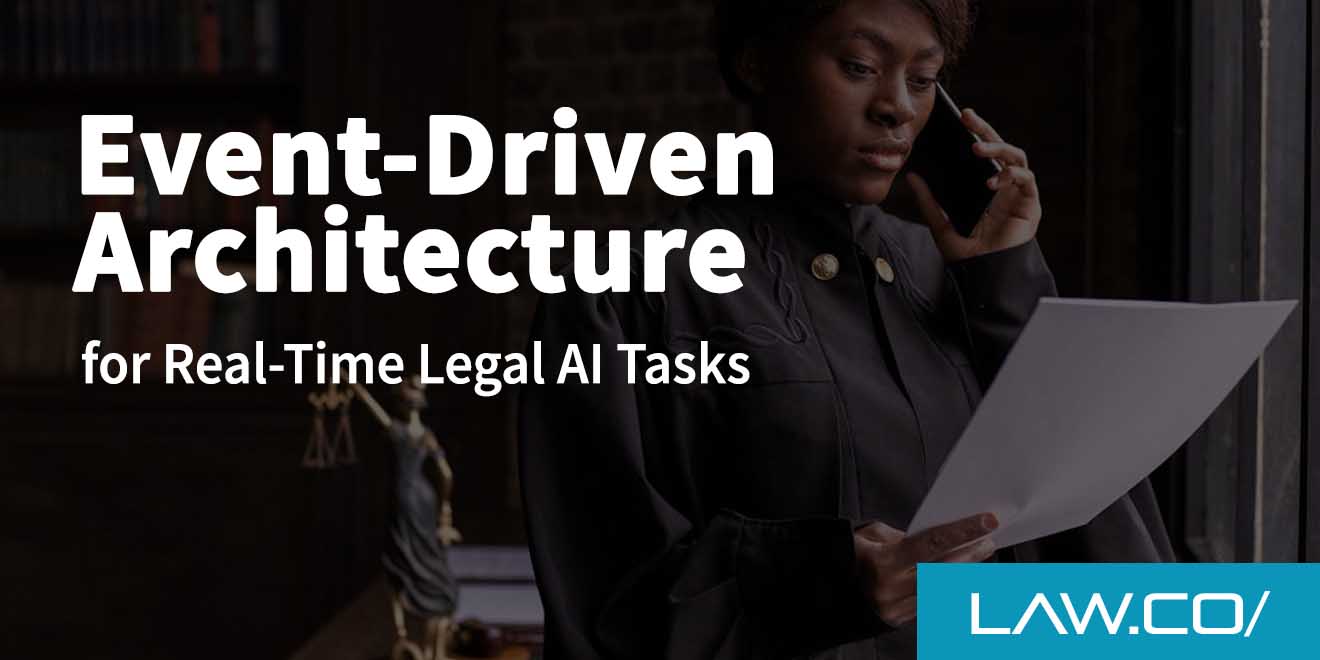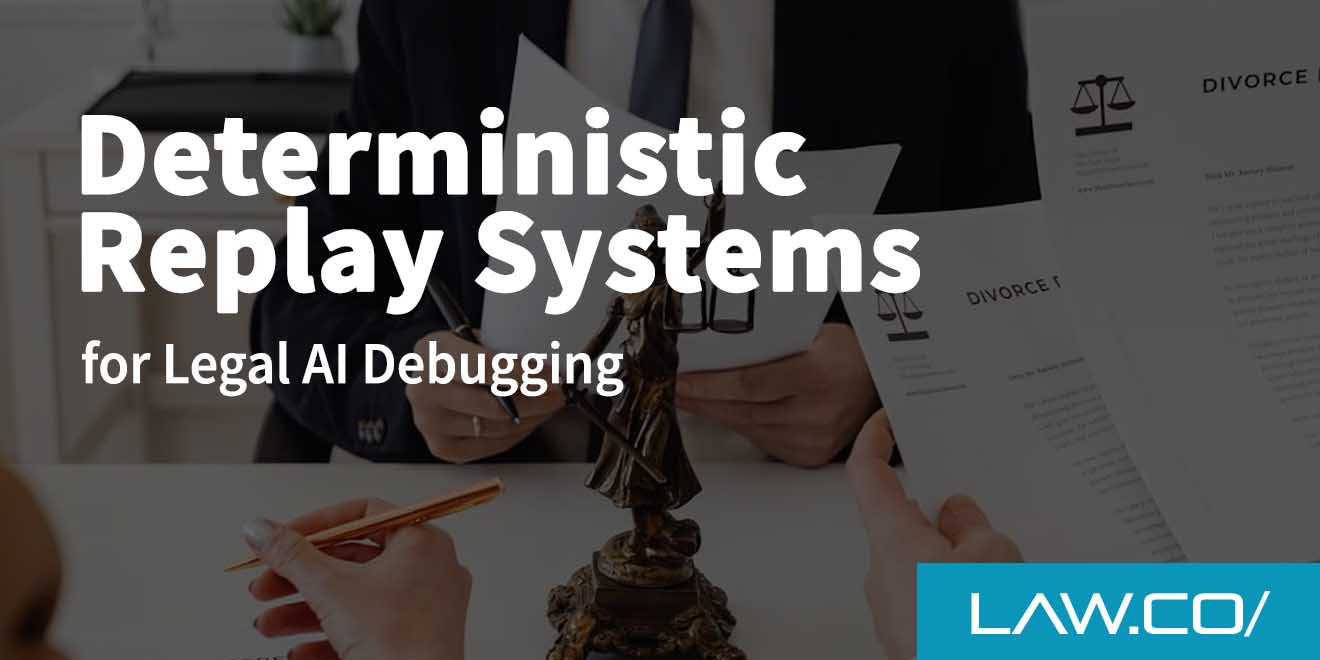

How AI Is Reshaping the Legal Assistant Position
Technological disruption isn't anything new.
Over the past couple of decades, we've seen an explosion of technological developments that have reshaped how we see the world, how we interact with each other, and of course, how we work.
The legal profession was considered somewhat untouchable, as a high-skilled and white-collar job. But now that generative AI and legal AI tools have entered the fray, we're starting to see major changes in legal positions all over the country.
Lawyers aren't being replaced by AI, necessarily. There are still countless legal responsibilities that legal AI can't handle. But lawyers and the people around them are being forced to change and adapt to this new technological landscape.
Notably, the position of legal assistant is beginning to evolve.
How exactly is this happening? And what can legal assistants do to preserve – and perhaps even improve – their careers?
The Legal Assistant
The duties and responsibilities of a legal assistant vary from firm to firm, naturally, but they generally include things like:
· Managing and organizing files. One of the primary responsibilities of a legal assistant is managing and organizing files. They may be at least partially responsible for drafting and creating these files, or they may be primarily concerned with keeping them organized and readily available for use. They may also be tasked with keeping these files private and secure for clients.
· Assisting with communications. In many law firms, legal assistants are responsible for assisting with communications. They may facilitate a dialogue between different lawyers or people within the firm, or they may be responsible for interfacing with clients directly. From writing emails to making phone calls, a legal assistant can communicate across many different channels.
· Conducting legal research. Some legal assistants are capable of conducting legal research on behalf of the lawyers at the law firm. They can review past cases, study laws and regulations, and present their findings to a lawyer, who can use that information in their responsibilities.
· Scheduling depositions. Assistants at law firms also typically assist with scheduling, including scheduling depositions. They can make sure there are no calendar conflicts and keep schedules as organized as possible.
· Preparing legal documents. Assuming they have the requisite skills, a legal assistant can help prepare certain legal documents. They may be able to pull up templates and make adjustments to them, or they may be able to make initial first drafts.
· Answering calls. Legal assistants aren't simple receptionists, but they may be responsible for answering calls coming into the law firm. They may also have a secondary responsibility of helping to preserve client relationships.
· Filing documents. When legal documents are complete, legal assistants may be responsible for filing them. This is crucial for getting certain legal processes moving.
· Accounting and billing. Additionally, legal assistants have historically been responsible for accounting and billing, at least in smaller firms without dedicated accounting departments.
Paralegals are a type of legal assistant with many similar responsibilities. However, to be a paralegal, candidates typically must have a bachelor’s degree and must complete a paralegal training program. Also, paralegals focus primarily on legal duties, while legal assistants handle administrative duties as well.
Legal AI as a Legal Assistant

Modern legal AI uses a combination of sophisticated search functionality, generative AI, and other technologically advanced features to function as a kind of legal assistant in its own right. For example, a broadly applied legal AI tool might be able to assist with things like:
· Legal research. Good legal AI tools can expedite and streamline legal research. In a matter of seconds, a concise query can help you find all the information you need to move forward with a case or a legal conundrum. Legal research tools are nothing new, but modern AI has taken them to the next level.
· Document drafting. Generative AI can help you with document drafting as well. If you're good with prompt engineering, you can generate a first draft of a common legal document, like a will or a contract, in just a couple of minutes. This is an effort that would have taken a legal assistant many hours in most cases.
· Document review. Many lawyers have turned to AI for help with document review, as this is a very tedious and time-consuming process. Rather than thoroughly reviewing each individual document before you, you can feed them through this advanced machine and drastically cut down on the total amount of work you or your assistant needs to do.
· Summarization. Even for experienced lawyers and legal assistants, legalese can be difficult to wade through. That's why it's so valuable to have legal AI tools that can concisely summarize even the most complicated documents and pieces of legislation.
Obviously, there's significant overlap between what modern legal AI tools can do and what legal assistants have historically done. Assuming all other factors are equal, such as quality of output, legal AI is superior in many ways; it's faster, it's cheaper, it's more consistent, and it's available 24/7.
Naturally, the legal assistant position is evolving in response to this.
Can Legal AI Replace Legal Assistants?
Experts are divided on whether legal AI can replace lawyers – and much depends on the time horizon in question. Is AI going to replace the legal profession in the next few years? The answer is absolutely not; legal AI is helpful, but there are many things that it can't do and it certainly isn't perfect. But could legal AI replace the entire legal profession in the next 50 years? When you consider how fast technology can advance, and how long 50 years really is, the answer is much less clear. In this setting, legal AI could gradually chip away at responsibilities held by human lawyers until there's nothing left.
We might see something similar for the legal assistant position, though there's one critical difference; right now, legal AI is capable of taking on more legal assistant responsibilities. Is legal AI in a position to replace legal assistants?
The answer is: not totally. As we've seen, legal AI can provide work at least as reliable as what legal assistants can provide in several categories, including legal research, document drafting, document review, and summarization. In many ways, legal AI is superior, making it a go to choice for even relatively small law firms.

Still, there are two important reasons why legal AI cannot fully replace a legal assistant.
First, there are some responsibilities of legal assistants that only humans can handle. For example, while voice bots do exist, the best way to handle an incoming call from a human is to have another human being answer it. Your legal assistant is going to be far superior to AI at communicating with clients, managing complex schedules, building relationships, and similar tasks.
Second, legal AI is best viewed as an enhancement, rather than a replacement. Instead of replacing your legal assistant with legal AI, you should be enhancing your legal assistant with AI. Your legal assistant, with their own knowledge, experience, and human mind is likely indispensable to your organization, and they're only going to become more effective at their job if they can use legal AI to work faster and more efficiently.
That said, there are some law firms that are reducing legal assistant positions and/or reorganizing legal assistant responsibilities in light of legal AI. Your best strategic move depends on the nuanced inner mechanics of your own law firm.
The New Paradigm for Legal Assistants
As a legal assistant, how should you approach this new paradigm?
· Advance your education. One option is to advance your education. If you get a JD degree, you can become a lawyer in your own right. If you gain more knowledge and experience, you'll become more valuable to the organization and less likely to be replaced by legal AI. At the very least, it pays to have a career backup plan.
· Polish skills that AI can’t handle. In most law firms, legal assistants are in no danger of being replaced because they have indispensable human skills that AI simply can't handle. Focus on building and developing these skills so that you can continue being irreplaceable to your employer (and future employers).
· Sell yourself as technologically capable. Instead of demonizing AI or outright avoiding it, lean into it. Sell yourself as technologically capable and do your best to learn how to utilize legal AI tools to their fullest extent. Along similar lines, remain flexible and open to using new technologies. A legal assistant who makes full use of legal AI is likely to be much more valuable than one who avoids it at all costs.
· Become a master of prompt engineering. Prompt engineering is the practice of thoughtfully orchestrating prompts for illegal AI to process. Legal AI is only as good as the prompts given to it, so if you get better at this key skill, you'll eventually become a master of this new technology. There's much more to prompt engineering than a first glance would indicate, so consider refining your skills here and adding prompt engineering to your resume.
· Use AI tools responsibly. Finally, exercise caution when using legal AI tools. Legal AI is designed to streamline most aspects of legal work, automating certain tasks and completely eliminating others. However, there are many issues that can arise here; for example, generative AI has been known to “hallucinate,” or fabricate details from scratch. If you want to use legal AI responsibly and in a way that protects your job and your clients, you'll need to exercise full, transparent disclosure and double check everything that the legal AI produces for potential mistakes.
Are you skeptical of the power of legal AI? Or are you interested in seeing what its true potential is?
We’ve got just the tool for you.
Sign up for a free trial today – and see how much time it could save your law firm!

%201.svg)










